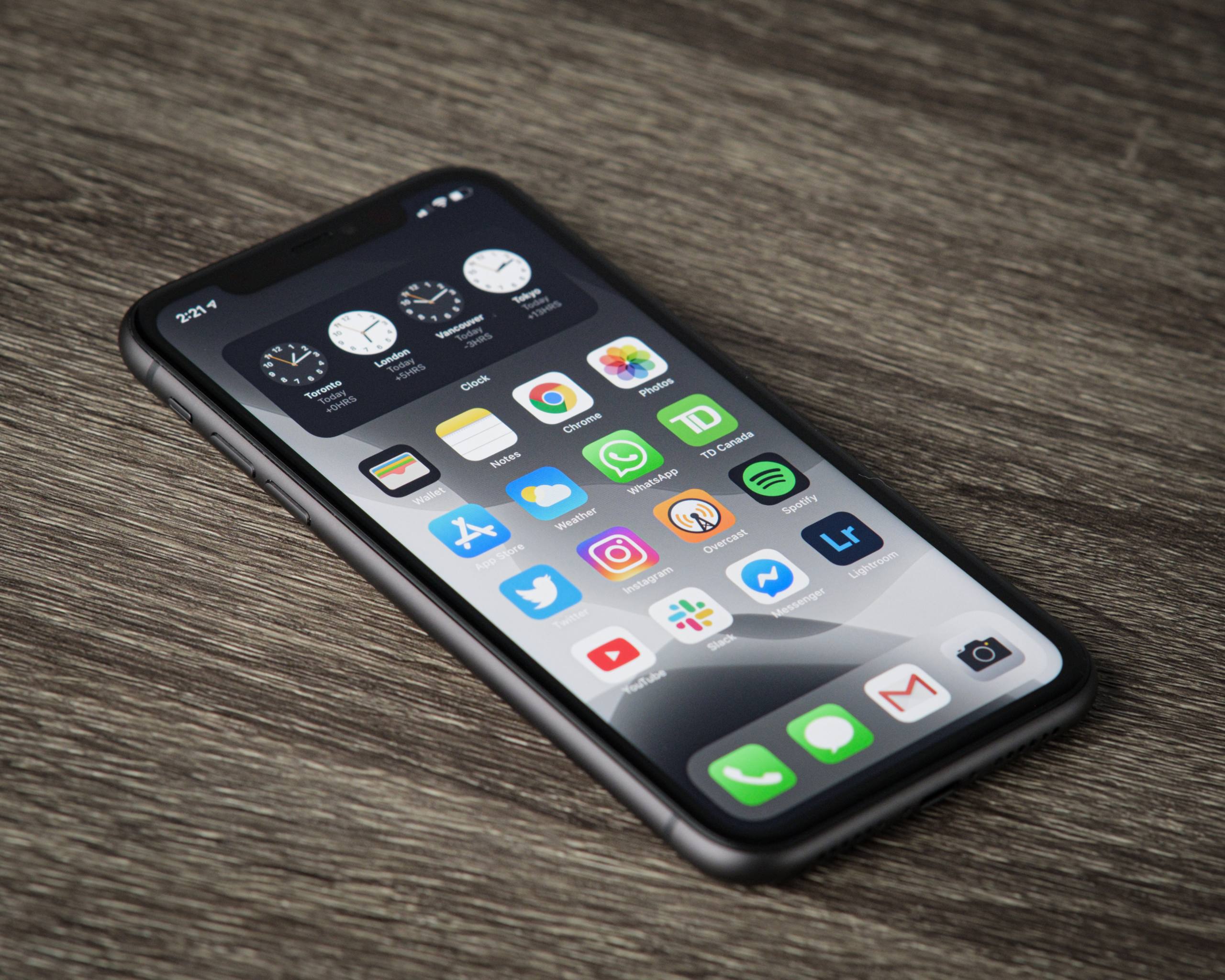Reading Time : 1 Mins
Why Application Security Must Be a Priority for Developers
Application security, also known as appsec for short, is a set of software and hardware components that protect applications from attack. It’s a subset of information security that focuses on the application layer and is used to protect web applications, mobile applications and cloud applications.
Mobile apps are the lifeblood of the modern digital world. A recent study shows that in the US alone, adults spend 5 hours per day on mobile devices. But just like most things in this world, mobile apps aren’t without their vulnerabilities. With more of our lives moving to mobile apps, app security is more important than ever before.
Let’s take a look at this vital area of mobile app development.
What is Application Security?
Application security refers to a set of techniques used to protect your mobile app from malicious attacks. It is especially important for web-based apps (like those for banking, finance, healthcare or social media), but even if you’re just making an app for fun, you should still be aware of the basic principles of app security.
App security is in a league of its own when it comes to cybersecurity. It’s a specialized field dedicated to developing solutions that prevent and resolve issues related to mobile apps. It is basically a process of keeping your mobile app safe from any external threats. As a business owner, you don’t want to think about your app being at risk, but you should.
In short, it is a way to protect your app from any unwanted bugs, attacks, and other issues that you can encounter when releasing your app. This includes malware protection and privacy protection, among other security measures.
We’ve all heard horror stories about apps that have been hacked. In this article, we’re going to talk about why app security is important and how it can protect your mobile app.
Why is App Security Important?
A study on Mobile and IoT security found that 60% of companies have had a data breach caused by an insecure mobile app. Moreover only 29% of apps are tested for vulnerabilities and most of the time the testing does not happen until the apps are ready to be released for production.
You may be wondering why app security is so important. After all, it’s not as if you don’t ever hear about issues with websites and desktop software. You might also ask: If I have a mobile app that is built using top-notch technology and has a quality UI/UX design, why would my application still not be secure?
This is because no matter how great an app looks or how well-built it is, it can still be attacked by malware or any other form of malicious attack.

Here’s how Zuci improved the security posture of a Baltimore-based credit lending institution’s mobile application.
Types of App Security
There are two types of application security:
-
Application Security Testing
The first type is application security testing, which is a set of processes designed to verify that your application is secure. It’s important to know that this type of testing doesn’t guarantee the security of your app; it only looks for vulnerabilities and checks whether they exist or not. This type of testing can be done manually (by people) or automatically (with the help of tools)
-
Application Security Monitoring
The second type is application security monitoring, which includes activities such as authentication, authorization, encryption and logging. With this process in place, you will always know what has been happening with your apps as well as who accessed them and when they did so
Ideally, security testing for your application must be comprehensive and act as your shield against security attacks.
What is at stake if my app security is compromised?
To answer that question, we need to look at all the different ways in which hackers, crackers, and other attackers can exploit your apps. There are a lot of ways they can do this, some more obvious than others. If a hacker is able to break into your app in any way, they could compromise many aspects of it, such as:
- Data Privacy – Unauthorized individuals will have access to confidential data of your organization, employees and/or customers
- Data Security – Unauthorized individuals will be able to amend or delete confidential data crucial to your business
- Data Protection – The confidentiality of sensitive information will be compromised and could be made public
- Data Integrity – The accuracy and consistency of your records will be in jeopardy
- Data Loss Prevention (DLP) – This involves the theft of information from an application or IT system. Instead of manipulating information for personal gain as in a typical breach scenario, DLP is used when an adversary wants to steal valuable intellectual property
- Weak Authentication – This can easily be surpassed by malicious applications or users
- Absence of Encryption – Sensitive data can be transmitted easily between systems if not properly encrypted
As a result, app security becomes an issue that can’t be ignored. If you don’t take steps to secure your app, you run the risk of losing customers and damaging your company’s reputation beyond repair.

Security Across Segments:
Cloud Application Security
Cloud application security is a subset of cybersecurity focused on protecting applications that are hosted in the cloud. It’s similar to traditional application security, but with added capabilities to handle the unique nature of cloud deployments.
Cloud application security is more important than ever because a growing number of organizations have moved their workloads to the public cloud, leaving them vulnerable to potential data breaches and malicious attacks. The best way to secure your apps against threats is through testing and monitoring them regularly for vulnerabilities. These include firewalls, role-based access control (RBAC), multi-factor authentication, and input validation.
Mobile Application Security
Security is of the utmost importance to app developers, as they are responsible for building an application that will be used by millions of people. If an attacker were able to gain access to your mobile app, they could potentially steal sensitive data from it or use it as a vehicle for distributing malware or other harmful software.
To ensure the security of your mobile apps, you must perform tests during development and after deployment. These tests look for vulnerabilities such as cross-site scripting (XSS), SQL injection and buffer overflows.
Vulnerabilities can cause data loss or leakage that could lead to financial losses for organizations using them on their networks. As such, it is vital that any vulnerabilities found during development or testing are fixed before deploying the application onto end-user devices where they will potentially be exploited.
Web Application Security
Web application security is the process of securing confidential data stored online from unauthorized access and modification. It is a subset of information security that deals specifically with applications. Web application firewalls (WAFs) are often used to protect websites against attacks aimed at web applications and services, such as SQL injection attacks, cross-site scripting (XSS), or path traversal attacks.
Industry standards such as the Open Web Application Security Project® (OWASP) and the Penetration Testing Execution standard (PTES) must be included to safeguard and strengthen the web system and APIs.
How to Protect Your Mobile Application?
- You need to make sure that your mobile app is secure, so you must use an SDK for your mobile app security
- You can use encryption and hash algorithms for securing the data in a mobile app
- Use the authentication technique for protecting the user identity and username & password security
- Role based security will help to access certain types of features and functionality depending on user roles
- You can also protect your data by using secure web services, secure communication, and secure coding practices
- Never store sensitive information like passwords in local storage; always store it in shared preferences or keychain because it’s more secure than local storage
We’ll also leave you with some App Security Best Practices:

Conclusion
We hope this article has helped you understand the importance of app security and its role in your development. Implement security measures in your app through a mobile app development company to help ensure that your app is safe from hackers or viruses and protect not only the app but also confidential user data.
Keep abreast of the latest trends and if you have any questions about application security, Contact us.
Found the article useful? You might also be interested in:
How much does it cost to develop an app in 2022?
15 Most Popular Apps to Download in 2022

Loves getting creative with mundane topics in addition to geeking out over books and movies.
Share This Blog, Choose Your Platform!
Related Posts




















